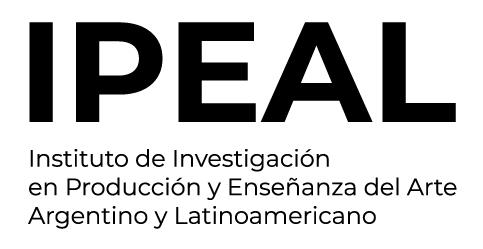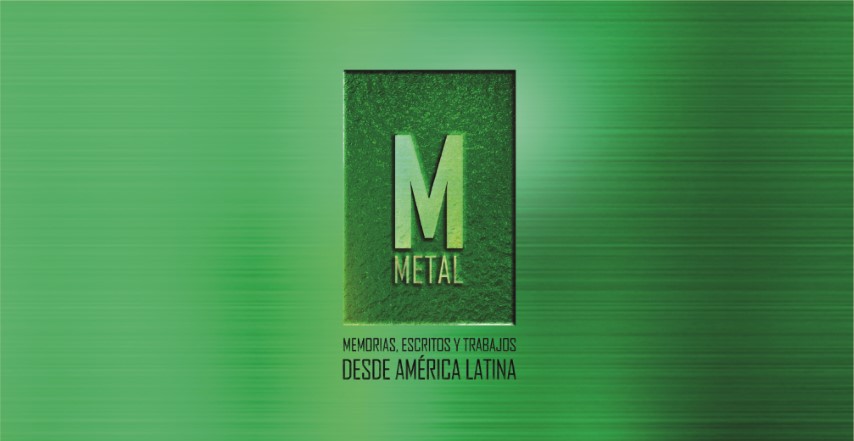The Latent Image. A pedagogical approach to the direction of photography
DOI:
https://doi.org/10.24215/24516643e001Keywords:
Direction of photography, pedagogy, artistic education, educative contexts, production contextsAbstract
The direction of photography of an audiovisualproduct is the result of the modes of productionfrom a place, its aesthetics, narrative styles,and representations. The pedagogy of thediscipline must be concerned with the contextwhere productions are made. Who are thestudents? What are their aesthetic interests?From what position do they construct thecinematographic image? A good method toanswer these questions consists in analyzingthe local productions of graduate studentsfrom the institution. This article analyzes thepossibility, but also the necessity, the use oflocal independent production as pedagogicalexamples in Audiovisual Arts classrooms.References
Almendros, N. (1982). Días de una cámara. Barcelona, España: Seix Barral.
Ausubel, D., Novak, J. y Hanesian, H. (1983). Psicología educativa: un punto de vista cognoscitivo. Ciudad de México, México: Trillas.
Belinche, D. (2011). Arte, poética y educación. La Plata, Argentina: Facultad de Bellas Artes. Universidad Nacional de La Plata.
Eisner, E. W. (1979). The educational imagination: On the design and evaluation of school programs. Nueva York, Estados Unidos: Macmillan.
El Día (21 de noviembre de 2016). La Usina local se muda a La Feliz. El Día. Recuperado de https://www.eldia.com/nota/2016-11-21-la-usina-local-se-muda-a-la-feliz
El Día (8 de marzo de 2004). Filmes de la Carrera de Cine. El Día. Recuperado de https://www.eldia.com/nota/2004-3-8-filmes-de-la-carrera-de-cine-en-elfestival-de-mar-del-plata
Huerta, P. (2018). Entrevista a Pablo Huerta, sobre su trabajo como director de fotografía de Los Muertos 2 y T.R.A.P. La Plata. Puede pedirse a .
La Banca, M. (Dir.). (2016). Los Muertos 2 [Largometraje]. Argentina: PARQUEE.
Lostra, A. (2016). Como frutas al sol: sobre lentes, chicles, mochilas y cables. Pulsión. Revista de cine, (4), 51-57.
Malowicki, A. (Dir) (1966). Carta de Ramona [Cortometraje]. Argentina: Universidad Nacional de La Plata.
Pulsión. Revista de cine. (2016). ¿Qué es el cine platense? Pulsión. Revista de cine, 7.
Ponzinibbio, P. y Franco, I. P. (2015). Estéticas de la producción. Pulsión. Revista de cine, (2), 25-29.
Rabe, P. (Dir.). (2014). Tejen [Largometraje]. Argentina: Más Ruido.
Vallina, C., Massari, R. y Peña, F. (2006). Escuela de cine Universidad Nacional de La Plata: creación, rescate y memoria. La Plata, Argentina: Universidad Nacional de La Plata.
Downloads
Published
How to Cite
Issue
Section
License
The acceptance of the manuscript by the magazine means the non-exclusive cession of the property rights of the authors in favour of the editor, who allows the reuse, after publication (post print), under a license Attribution-NonCommercial-NoDerivatives 4.0 International.
According to these terms, the material can be copied and redistributed by any means or in any format as long as a) the author and original source of the publication are quoted (magazine and URL of the work), access to the license is provided and whether changes have been made is mentioned; and b) the material is not used for commercial purposes.
The cession of non-exclusive rights means that after the publication (post print) in Metal the authors can publish their work in any language, means and format; in such cases it must be mentioned that the material was originally published in this magazine. Such cession also means the authorization of the authors for the work to be collected by SEDICI, the institutional archive of the Universidad Nacional de La Plata, and to be spread in the databases that the editorial team considers appropriate to increase the visibility of the publication and its authors.
Moreover, the magazine encourages the authors to deposit their productions in other institutional and thematic archives under the principle that offering the society the scientific and academic production without any restrictions contributes to a greater exchange of the global knowledge.



























